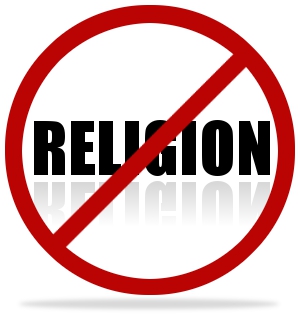As America becomes less religious, the Democratic Party is becoming less religious faster than the Republican Party. Given the extent to which religious identification determines partisan identification, the GOP is on a downward trajectory.
That’s the political conclusion to be drawn from Pew’s new report on religious decline in America, based on data gathered for its 2014 U.S. Religious Landscape Survey. One of the report’s most useful contributions is to distinguish between older and younger Millennials. The older ones were 18-26 when Pew’s first Landscape Survey was conducted in 2007; the younger were 18-26 last year.
Historically it’s been normal for Americans to be least hooked into religion in early adulthood and to grow more religious as they settle down, get married, and have children. In that regard, it’s particularly striking that older Millennials, now 27-35, have grown less religious as they’ve aged — saying they attend services less, pray less, and that religion is less important in their lives than when they were in their early twenties. Thirty-four percent of them are Nones, up from 25 percent in 2007. As for younger Millennials, 36 percent of them are Nones.
The Nones, who have grown since 2007 by nearly seven points to over 22 percent of the U.S. adult population, now constitute the largest religious component of the Democratic Party, up from 19 percent to 28 percent. They constitute just 14 percent of the GOP, up from 10 percent. Evangelicals, whose share of the population has stayed about the same since 2007, have slightly increased their component of the GOP, from 37 percent to 38 percent.
The best news for the Republicans is that the 2014 data show a modest aggregate shift toward identification with their party since 2007. And given that Nones are less likely to vote than the religiously affiliated, their prospects for the 2016 election may not be too bad. But it’s important to bear in mind that 2007 was banner year for Democrats and 2014 a very good one for Republicans. This year, according to Gallup, Democratic identification is on the upswing.
A decade ago, Democrats recognized they had a religion problem, made an effort to address it, and recaptured both houses of Congress and the presidency. In the current election cycle, there’s little evidence that the Republicans recognize they have a secularism problem.






